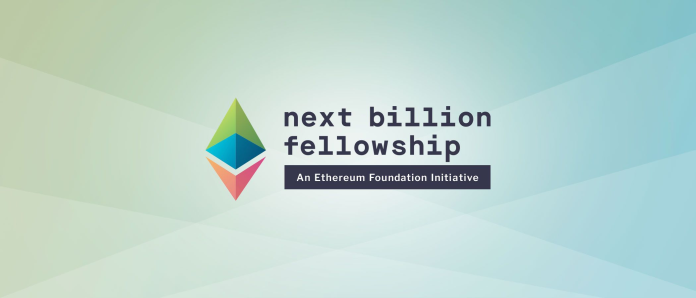As we look at our world, it is evident that individual humans are increasingly on the edges and in the margins of the main stories that are taking place. The narratives that are captivating and resonating with ordinary people appear to be at a scale too big for a single person to change in a meaningful way. However, this is not the truth of our world and it is not the right way to understand our potential as humans.
The Ethereum protocol potentially has an important role to play in the big narrative of our world. We should ask ourselves: Who are the characters in this story? To better appreciate the potential of Ethereum and the future of human coordination, we must understand it through the lens of individual humans.
We would like to present five humans with stories to tell, who will be starting their Next Billion Fellowship at the Ethereum Foundation. These individuals are highly qualified, but represent only a small fraction of the capable people out there working to solve some of humanity’s deepest coordination problems. We hope their stories can act as a reflection of the true character of the Ethereum community and an inspiration for how this open protocol can have a positive impact on the lives of billions.
Brian Limiardi is a co-founder of Copra Finance, a company that builds for financial inclusion in Indonesia. Access to personal loans is available through banks, but when it comes to invoicing and bookkeeping using cryptocurrency, this access can be an obstacle. Brian will focus on researching the needs and realities of the growing demographic of workers and small businesses who use crypto as their primary means of invoicing and bookkeeping.
Devansh Mehta, co-founder of VoiceDeck, wants to map out the public good impact space. There are well-documented mechanisms for environmental use cases, but sometimes ‘impact’ moves into more subjective territory. Devansh will look into methodologies of impact documentation using the hypercerts standard with the aim of finding a good mechanism of retroactive funding for positive social outcomes.
Masahiro “Masa” Fukuhara of ONGAESHI DAO is exploring mechanisms of retroactive solidarity payments in education and employment. Masa and the ONGAESHI DAO team members will learn from pilot programs in which contributors to the public good of education, such as funders and teachers, are rewarded when businesses hire their students.
Mulenga Kapwepwe is the co-founder of the Women’s History Museum of Zambia. Many African artifacts are in museums around the world, but rarely are these items connected to the people and communities who created them. Mulenga is working on a tokenized artifact registry with the Zambian web3 community, experimenting with museum revenue sharing for community documentation of art, customs, and crafting methodologies.
Valeriia “Ria” Panina is a user experience specialist and an advisor to the Ukraine’s Ministry of Digital Transformation. Ria is researching the real drivers and blockers of adoption of cryptocurrencies and other decentralized applications for ordinary users to map emergent use cases and behaviors in Ukraine.
Throughout the next six months, each fellow will be working on a small project that contributes to their story. Their stories will be published in 2023 on this blog, but there are more opportunities to meet and learn about their projects, such as attending devconnect in Istanbul and in particular the Next Billion World Café event.
To all the applicants to the Next Billion Fellowship cohort 3 who were not selected, we thank you for sharing your story with us and we are glad to know that you’re out there creating the future of human coordination. Sign up to updates about the Next Billion Fellowship here!

